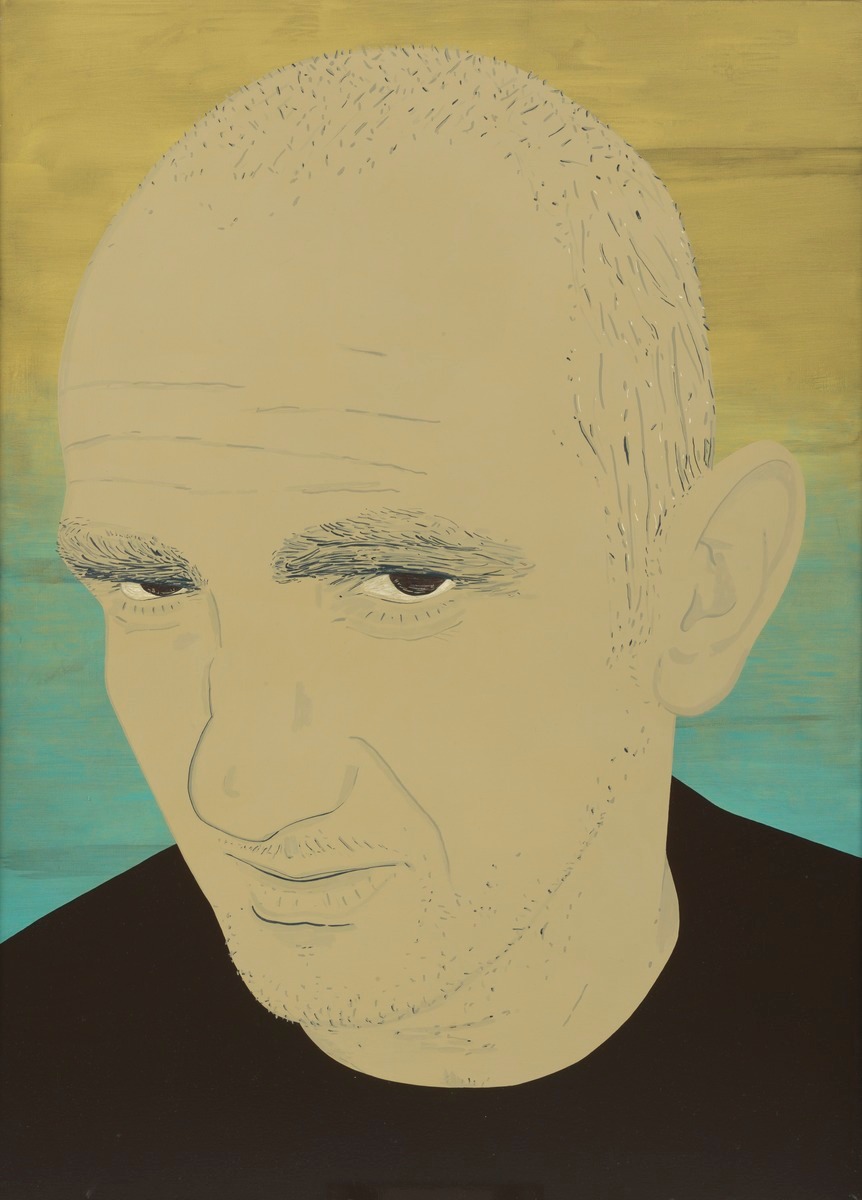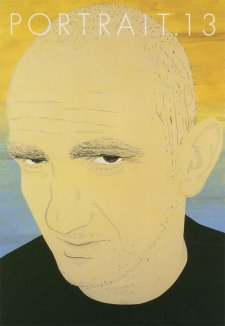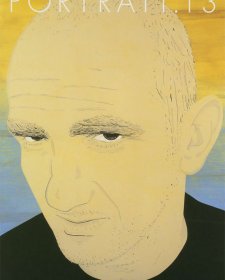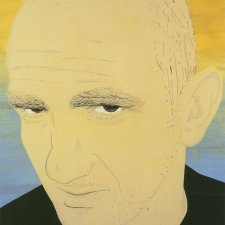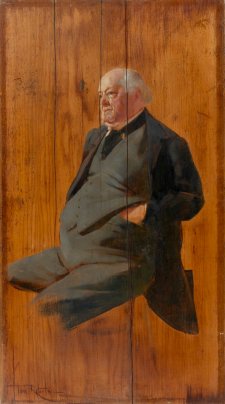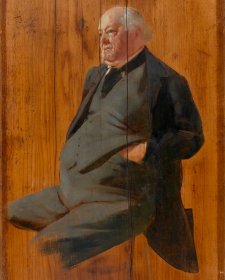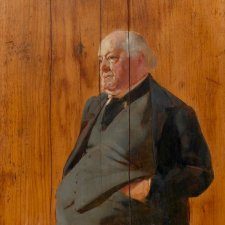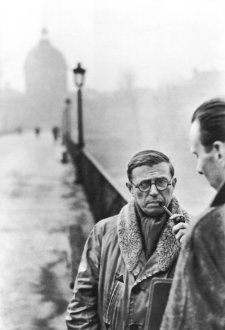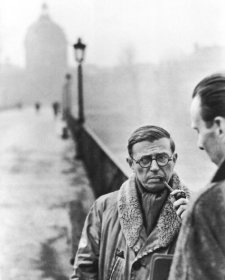Over the past few years Melbourne-based artist Jon Campbell had thought about entering the Archibald portrait competition, but could not decide on a sitter. Gradually, he formed an interest in painting the singer and songwriter Paul Kelly.
Campbell had been a fan of Kelly's since about 1980. He had met him several times, once in unlikely circumstances, when Campbell's band was booked to play at a pub but ran late, and Kelly, who lived around the corner from the venue, filled in for them until they got there. Campbell had always responded to the directness of Kelly's songs; he felt there was a link between the themes and style of his own work (which has explored cars, rock music, surfing and life in the suburbs) and those of Kelly's. Also, he thought that Kelly had a 'great looking head'. He mentioned the possibility of a portrait to Kelly, and sent him some images of his work, but Kelly was both busy and shy, a 'private kind of person' and a year or so went by.
In November 2003, Campbell went to see Neil Young perform at Melbourne's Myer Music Bowl. In the beer queue at the interval he ran into Kelly, who confirmed that he was prepared for Campbell to paint a portrait of him to enter in the 2004 Archibald. The artist went to Kelly's home and took a couple of rolls of film and then drew for an hour and a half, sitting out in his backyard with some music playing, chatting generally about music and art. Although he had developed a 'fair idea' of how he would approach the portrait before he started work on it, he found that it 'took on a life of its own' as he painted it over the ensuing weeks. He intended the head to dominate the canvas; 'I wanted to keep it simplified and concentrate on line work to try and capture some of his intensity. It wasn't until I had actually started to draw him that I got a bit more of a sense of the intricacies of his features. That's the amazing thing about having someone sit for you. I had forgotten because I hadn't drawn anyone from life for a while. Once you are working and concentrating, you have a strong sense of how dark his eyes and eyebrows are, and that his nose is crooked and bumpy and that he had stubble. I hadn't really considered that I would have to paint stubble.'
Kelly was overseas while his portrait hung in the Salon des Refuses of the 2004 Archibald competition and he has not yet seen the finished work; Campbell says 'I guess I'll bump into him at some point and ask him what he thinks of it'. The artist is pleased with the result. He feels that the 'stripped back to essence' quality of the painting reflects Kelly's spare and frank approach to music.
Paul Kelly (b. 1955), singer, songwriter and producer, grew up in Adelaide and made his performing debut in Hobart in 1974. From very early on in his career, critics recognised him as one of the most important music artists in the country; the broad public caught on in 1986, when the double album Gossip by Paul Kelly and the Coloured Girls was one of the biggest Australian records of the year. Ian McFarlane, author of the Encyclopedia of Australian Rock and Pop, describes Gossip as 'one of the genuine classics of Australian rock'. The band made Under the Sun (1987) before touring the US as Paul Kelly and the Messengers. They disbanded in 1991, and from that point Kelly branched into producing and acting as well as writing and performing. In 1997 he was named Best Male artist at the Australian Record Industry Association awards and inducted into the ARIA Hall of Fame. Kelly sings with a marked Australian accent and his songs often refer to specific Australian people, places and events. Though he has written most of his long and poetic songlist alone, he has also collaborated brilliantly, particularly with indigenous performers such as Kev Carmody, Christine Anu, and Yothu Yindi, with whom he wrote 'Treaty', one of the quintessentially Australian songs performed at the opening of the Sydney 2000 Olympic Games.
